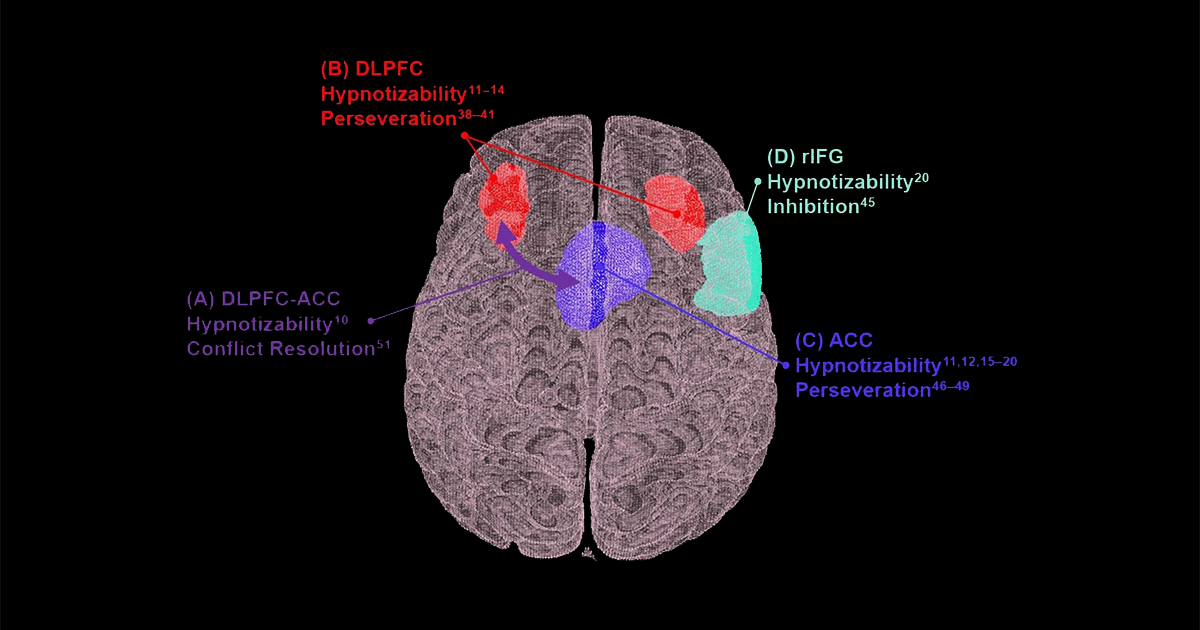


David Spiegel and Afik Faerman explored the link between hypnotizability and executive control and information salience networks in the brain, which are crucial for resolving cognitive conflicts and perseveration. (The continuation of something (such as an activity or thought) usually to an extreme degree or beyond a desired point). In their study involving seventy-two healthy adults, they found that those with higher hypnotizability showed lower levels of perseveration, even when factors like age and education were considered. However, hypnotizability did not significantly predict set-shifting capabilities. These findings suggest an inverse relationship between hypnotizability and perseveration, indicating that individuals who are more susceptible to hypnosis may have a unique cognitive profile involving enhanced executive control and information processing.
Key findings include:
- Hypnotizability and Executive Functioning: Higher hypnotizability is associated with lower perseveration, which refers to the reduced tendency to continue applying a previously learned logical rule when it’s no longer relevant. This suggests that individuals with higher hypnotizability have better cognitive flexibility, allowing them to adapt more quickly to new situations or rules without being stuck in outdated patterns of thought.
- Brain Networks and Hypnotizability: The study confirms a connection between hypnotizability and the activity in brain networks related to executive control and information salience. This includes areas like the dorsolateral prefrontal cortex and the anterior cingulate cortex, which are involved in monitoring conflicts in information processing and adapting behavior accordingly. These areas are crucial for cognitive functions such as decision-making, attention, and the evaluation of the relevance (salience) of information.
- Safety and Effectiveness of Hypnotherapy: The inverse relationship between hypnotizability and perseveration, without any significant compromise to other cognitive functions, supports the safety of hypnotherapy. Individuals who are more susceptible to hypnosis do not exhibit a general impairment in cognitive function; rather, they show an adaptive cognitive profile that could potentially enhance the effectiveness of hypnotherapy. The study’s insights into the neurocognitive mechanisms underlying hypnotizability suggest that hypnotherapy is a safe therapeutic approach when conducted by professionals, capable of effectively leveraging the brain’s natural cognitive processes for therapeutic benefit.
Overall, the study by Faerman and Spiegel provides robust evidence supporting the safety and efficacy of hypnotherapy, illustrating that higher hypnotizability is linked to beneficial cognitive flexibility without detrimental effects on overall cognitive functioning. This reinforces the clinical potential of hypnotherapy for treating various conditions, leveraging the natural capacities of the brain to enhance healing and well-being.
Reference:














